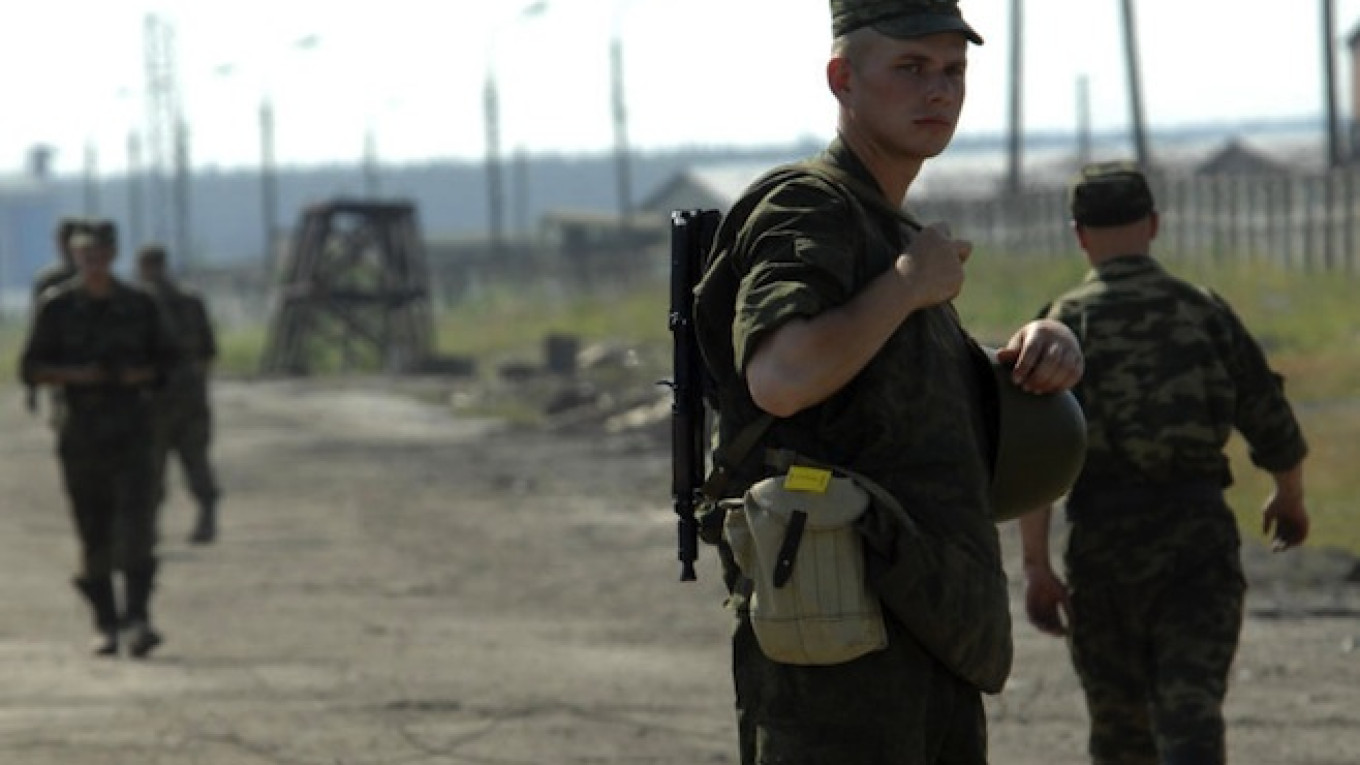Respiratory illnesses and skin diseases in the Russian army have declined considerably after the military installed showers and washing machines, built warmer barracks and replaced tsarist-era foot wraps with socks, military officials say.
The improvements — which come amid President Vladimir Putin's large-scale reform of the military — caused overall disease rates among soldiers to drop nearly 13 percent last year compared with the year before, chief military doctor Alexander Fisun told the Izvestia newspaper in a report published Thursday.
The decline was mostly due to a drop in respiratory illnesses, such as the common cold, and skin diseases — two categories that together account for a vast majority of soldiers' ailments, the report said.
An unidentified Defense Ministry official attributed the army's improving health to the construction of better-insulated, warmer barracks, replacing the foot wraps — or portyanki, which Russian soldiers had worn for centuries — with socks, and installing washing machines and about 40,000 shower stalls last year for soldiers to use, Izvestia reported.
"People got the opportunity to wash up not once a week, but twice a day," the official was quoted as saying.
But Valentina Melnikova, the head of the Soldiers' Mothers Committee, a respected rights-watchdog group, said sore throats and runny noses still persisted among troops due to military commanders' reluctance to send soldiers who come down with a cold to the infirmary, contributing to the spread of the bug.
"We have no problems with army medicine, but we have some questions for commanders who are often unwilling to hospitalize servicemen in time," Melnikova told Izvestia.
But Melnikova said the problem seemed to have abated recently, with soldiers becoming more aware of their option to appeal to military prosecutors to protect their health-care rights, and with Defense Minister Sergei Shoigu assuring her that military commanders have been ordered "not to be afraid to damage illness statistics" by sending soldiers to see a doctor, the report said.
A big part of Putin's military reform, intended to turn the army into an effective, combat-ready force, involves refitting the military with modern weapons — a program on which the government is planning to spend 1.7 trillion rubles ($50 million) this year, according to RIA Novosti.
The country's overall military budget stands at about 2.5 trillion rubles, making it the world's third largest after the U.S. and China, RIA Novosti reported.
The reform also involved putting socks on soldiers' feet instead of the often ridiculed "portyanki," which were retired last year.
This seemed to also help the army get rid of skin diseases. Melnikova told Izvestia that her committee stopped receiving complaints about skin diseases after 2012.
According to Fisun's chief military medicine department, respiratory illnesses account for 60.3 percent of soldiers' ailments, and skin diseases come in second with 13.9 percent, the report said.
See also:New Russian Army Symbol Copy of U.S. Mall Sign, News Report Says
A Message from The Moscow Times:
Dear readers,
We are facing unprecedented challenges. Russia's Prosecutor General's Office has designated The Moscow Times as an "undesirable" organization, criminalizing our work and putting our staff at risk of prosecution. This follows our earlier unjust labeling as a "foreign agent."
These actions are direct attempts to silence independent journalism in Russia. The authorities claim our work "discredits the decisions of the Russian leadership." We see things differently: we strive to provide accurate, unbiased reporting on Russia.
We, the journalists of The Moscow Times, refuse to be silenced. But to continue our work, we need your help.
Your support, no matter how small, makes a world of difference. If you can, please support us monthly starting from just $2. It's quick to set up, and every contribution makes a significant impact.
By supporting The Moscow Times, you're defending open, independent journalism in the face of repression. Thank you for standing with us.
Remind me later.


